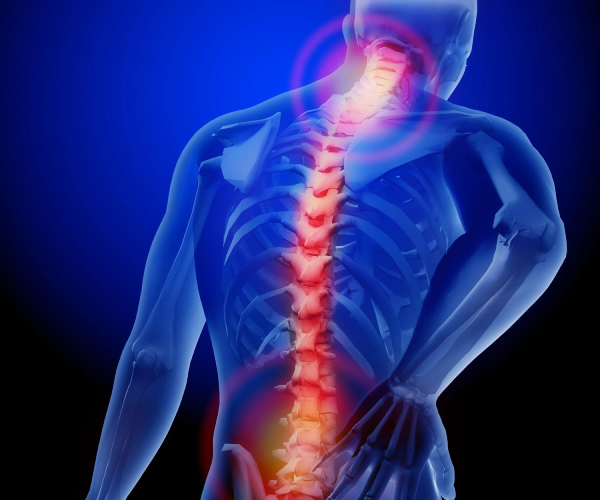
Understanding Back Pain: When Do You Need a Neurosurgeon vs. an Orthopedic Doctor?
Back pain is a common issue, affecting millions worldwide, and it can stem from a variety of causes—from simple muscle strains to complex spinal conditions. When it comes to addressing chronic or severe back pain, seeking specialist care is essential. But which specialist should you choose—a neurosurgeon or an orthopedic doctor? This article explores the roles of each, helping you understand when to consult either a neurosurgeon or an orthopedic doctor for back pain management.

When to See a Neurosurgeon
-
Nerve-Related Issues
Neurosurgeons specialize in conditions affecting the nervous system, including nerves along the spine. If your back pain is accompanied by symptoms like tingling, numbness, or weakness that radiates down your legs or arms, it may be nerve-related. These symptoms suggest issues like herniated discs, spinal stenosis, or nerve impingement, all of which are best evaluated by a neurosurgeon.
-
Complex Spinal Disorders
Conditions like spinal cord tumors, Chiari malformations, and other rare or complex spinal disorders are often within the expertise of a neurosurgeon. Neurosurgeons have the training to manage intricate conditions that require a deep understanding of both the spine and the central nervous system.
-
Severe Spinal Injuries
If you've experienced severe trauma, such as a spinal fracture or injury that impacts the spinal cord, a neurosurgeon may be the most appropriate specialist. They are trained to handle injuries that pose a risk to the spinal cord and its surrounding structures, with the goal of preventing long-term neurological damage.
-
Neurosurgical Procedures for Pain Management
Some neurosurgeons are trained in minimally invasive procedures that target nerve pain, such as spinal cord stimulators or nerve decompression surgeries. These interventions can provide significant relief for chronic pain that has not responded to traditional treatment methods.
When to See an Orthopedic Doctor
-
Structural Issues of the Spine
Orthopedic doctors specialize in the musculoskeletal system, including bones, muscles, ligaments, and joints. If your back pain is due to structural issues like scoliosis, degenerative disc disease, or spinal arthritis, an orthopedic doctor is often the ideal choice. They can evaluate the mechanics of your spine and suggest treatments like physical therapy, bracing, or surgery if necessary.
-
Sports-Related or Muscular Injuries
Orthopedic doctors frequently treat injuries related to sports or physical activity, especially when pain originates in the muscles, ligaments, or joints around the spine. If you've sustained an injury while exercising or participating in sports, an orthopedic doctor can assess and treat soft tissue injuries as well as joint or bone misalignments.
-
Degenerative Conditions of the Spine
Conditions that result from wear and tear, such as osteoarthritis or spinal stenosis, often benefit from an orthopedic approach. Orthopedic doctors can provide treatments like steroid injections, physical therapy, or in some cases, surgery to alleviate pain and improve mobility.
-
Spinal Surgery for Structural Correction
Orthopedic surgeons are skilled in procedures that correct structural abnormalities in the spine. If surgery is recommended for issues like herniated discs, scoliosis, or spinal instability, orthopedic surgeons are often the ones performing spinal fusions, laminectomies, and similar corrective surgeries.
Who to Choose for Spinal Surgery?
Both neurosurgeons and orthopedic surgeons are highly trained in spinal surgeries, including minimally invasive and complex procedures. However, there are slight differences in their training and focus:
Neurosurgeons:
Generally focus on the nervous system, making them experts in surgeries involving nerve decompression, tumor removal, and intricate procedures near or on the spinal cord.
Orthopedic Surgeons:
Often concentrate on structural corrections, spinal alignment, and stabilizing the spine through fusion or other reconstructive methods.
For some spinal conditions, both specialists may be equally qualified, and often they work together on complex cases, particularly in specialized spine centers.
When to See a Doctor for Back Pain
While many cases of back pain resolve on their own with rest, some symptoms require immediate medical attention:
- Persistent Pain: Pain lasting over a few weeks requires medical evaluation to determine the underlying cause.
- Radiating Symptoms: Pain, numbness, or weakness that radiates down the legs may indicate nerve involvement.
- Emergency Symptoms: Loss of bowel or bladder control (a possible emergency known as cauda equina syndrome) requires immediate medical attention.
- Trauma-Related Pain: Pain following an injury or accident should be evaluated by a medical professional.
- Unexplained Symptoms: Weight loss alongside back pain may indicate an underlying condition that needs investigation.

Dr. Adam Kamrudeen
Neurosurgeon in Navi Mumbai
- MBBS, MS – General Surgery,
- MCh – Neuro Surgery
- Brain & Spine Surgeon in Navi Mumbai
Conclusion
Consulting with Dr. Adam Kamrudeen, a skilled neurosurgeon in Navi Mumbai, is crucial if you're dealing with spondylosis. This degenerative condition of the spine can cause significant pain and mobility issues. Dr. Adam Kamrudeen will assess your condition and explain the surgical and non-surgical treatment options available, including minimally invasive techniques to relieve pain and restore function.
Understanding when to see a neurosurgeon versus an orthopedic doctor can be crucial for effective back pain management. Neurosurgeons are best suited for nerve-related issues and complex spinal disorders, while orthopedic doctors focus on structural and degenerative conditions of the spine. Consulting the right specialist can lead to a more targeted treatment approach, improving your chances of pain relief and recovery.
If you're uncertain which specialist to choose, speak with your primary care physician, who can guide you based on the specific nature of your symptoms and overall health.
